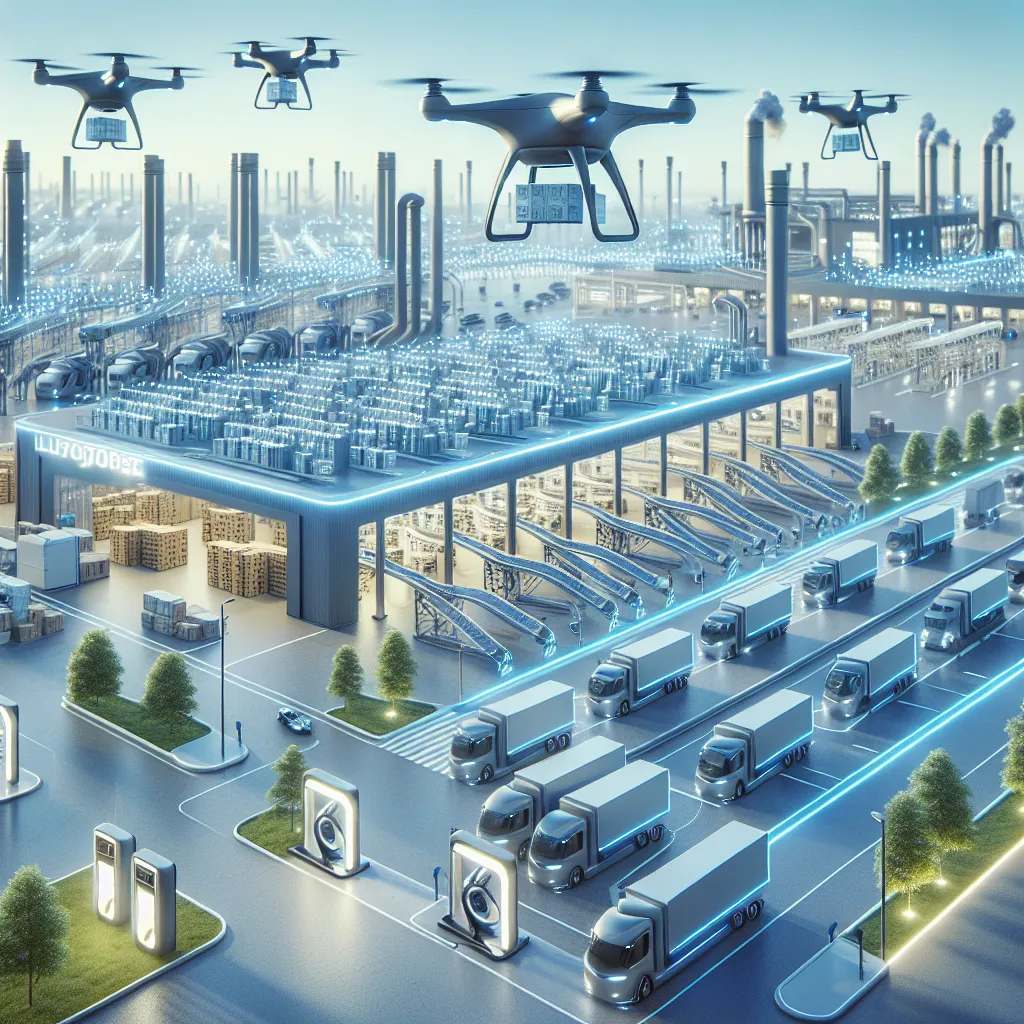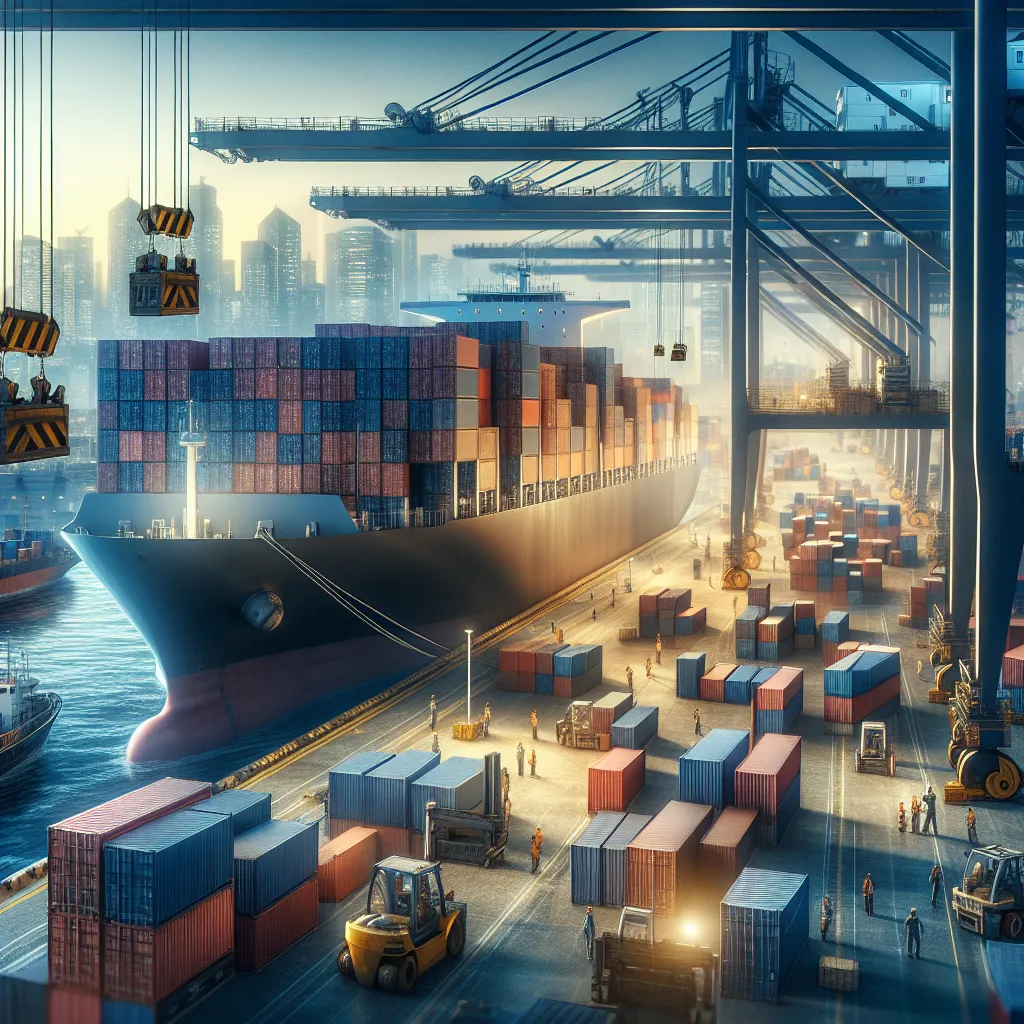The Impact of Blockchain Technology on Freight Forwarding
Blockchain technology is revolutionizing the freight forwarding industry, offering a secure and transparent way to manage transactions and logistics processes. The impact of blockchain in freight forwarding is evident in its ability to streamline supply chain operations, enhance security, and reduce the need for intermediaries.
By leveraging blockchain, freight forwarders can create immutable records of transactions, leading to increased trust and reduced disputes. Smart contracts powered by blockchain technology can automate various processes, such as customs documentation and payment settlements, leading to increased efficiency and cost savings.
Furthermore, blockchain facilitates secure and transparent tracking of shipments, providing real-time visibility and accountability across the entire supply chain. This level of transparency is invaluable in addressing issues such as cargo loss or delays.
As the freight forwarding industry continues to embrace digitalization, blockchain technology is poised to play a pivotal role in shaping the future of logistics. Its ability to enhance security, transparency, and efficiency makes it a game-changer in an industry that relies heavily on the seamless movement of goods across borders.
In conclusion, the integration of blockchain technology in freight forwarding is set to bring about significant enhancements in operational processes, ultimately leading to a more streamlined and secure global logistics network.
Automation and Artificial Intelligence in the Future of Freight Forwarding
Automation and artificial intelligence are set to revolutionize the future of freight forwarding, bringing unprecedented efficiency and productivity to the industry. In the increasingly digitalized landscape of logistics, automation has emerged as a key driver of transformation, streamlining operations and enhancing decision-making processes.
With the implementation of advanced technologies such as robotic process automation (RPA) and machine learning, freight forwarders can expect significant improvements in various aspects of their operations. RPA facilitates the automation of repetitive tasks, reducing the margin of error and enabling employees to focus on more complex and strategic activities. On the other hand, machine learning algorithms can analyze large sets of data to provide actionable insights, optimizing routes, predicting demand patterns, and ultimately enhancing the overall supply chain efficiency.
Furthermore, the integration of artificial intelligence in freight forwarding holds the promise of predictive analytics and proactive problem-solving. By leveraging AI-powered predictive analytics, forwarders can anticipate potential disruptions, such as weather-related delays or capacity constraints, and take proactive measures to mitigate their impact. This proactive approach not only minimizes disruptions but also enhances customer satisfaction through improved reliability and transparency.
In the future, automation and artificial intelligence are poised to redefine the competitive landscape of freight forwarding, empowering companies to stay ahead of the curve by leveraging data-driven insights and optimizing processes. As the industry continues to embrace digitalization, forwarders that harness the full potential of these technologies will undoubtedly gain a strategic advantage in the evolving landscape of logistics.
Sustainability and Eco-Friendly Solutions in Digitalized Freight Forwarding
In the ever-evolving landscape of freight forwarding, the future is unmistakably digital. As the industry continues to embrace technology, the focus on sustainability and eco-friendly solutions is becoming increasingly crucial. The integration of digitalization in freight forwarding not only streamlines processes and enhances efficiency but also presents opportunities for reducing environmental impact.
By leveraging digital platforms, freight forwarders can optimize route planning and minimize empty runs, thereby reducing fuel consumption and emissions. The utilization of data analytics and real-time tracking further enables companies to make informed decisions that contribute to more sustainable logistical operations. Additionally, the implementation of electronic documentation and automated processes not only enhances efficiency but also reduces paper usage, contributing to environmental conservation.
Furthermore, the advent of digitalization has paved the way for the introduction of alternative fuel technologies and electric vehicles in freight transportation. The integration of eco-friendly vehicles, coupled with digitalized fleet management systems, holds the promise of significantly decreasing the carbon footprint of freight forwarding operations. Moreover, the adoption of innovative packaging solutions and smart warehousing technologies driven by digitalization can lead to reductions in packaging waste and optimized use of storage space, promoting sustainability throughout the supply chain.
In conclusion, as digitalization continues to revolutionize the freight forwarding industry, the integration of sustainability and eco-friendly solutions remains paramount. By harnessing the power of digital technologies, the industry has the potential to drive significant positive environmental impact while meeting the growing demands of global trade.




